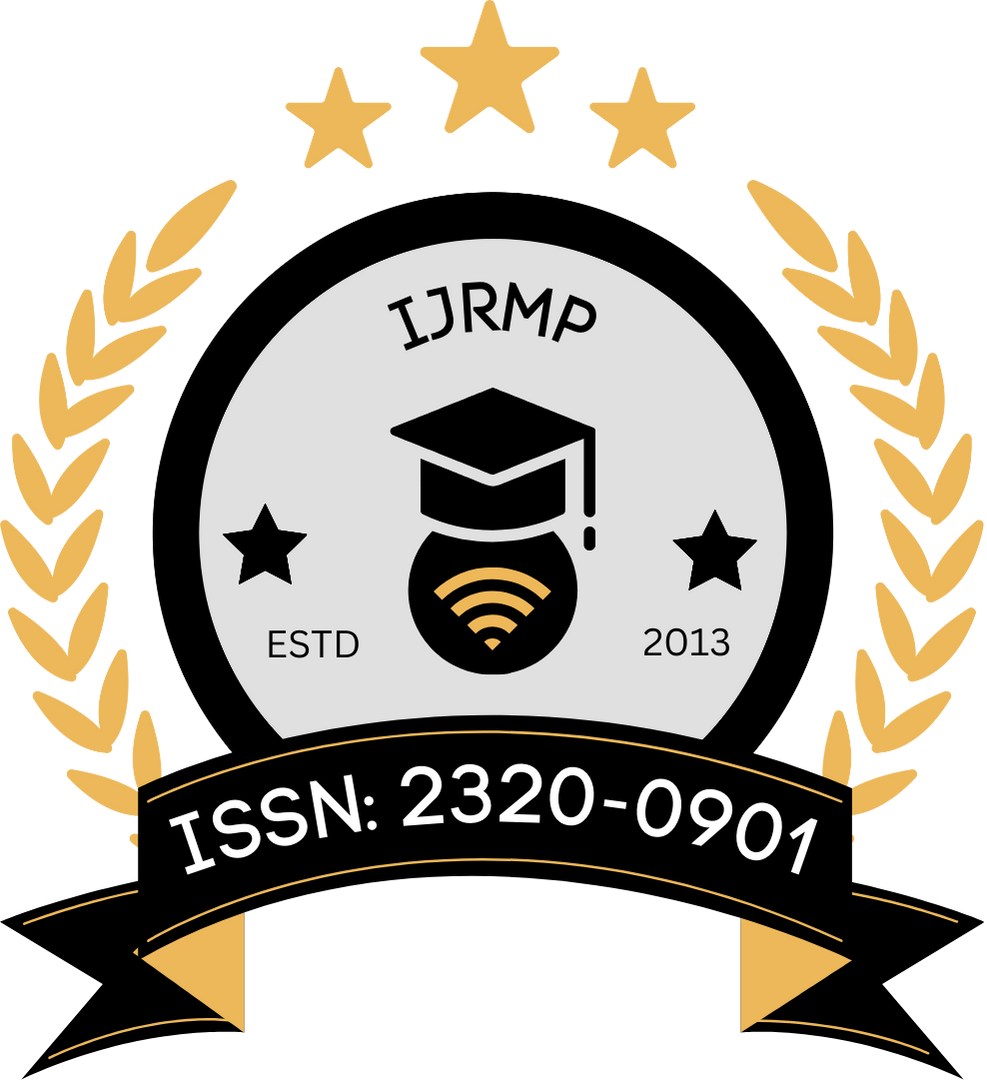![]()
DOI: https://doi.org/10.63345/ijrmp.org.v8.i6.1
Mohan Singh
Independent Researcher
Chandigarh, Punjab, India
Abstract
The growing complexity of global pharmaceutical supply chains has heightened the risk of counterfeit drugs entering the market, thereby endangering patient safety and undermining public trust. Blockchain technology, with its decentralized, transparent, and immutable ledger system, offers an innovative solution to ensure the traceability of drugs from manufacturing to the point of sale. This manuscript examines blockchain-based drug traceability as an emerging business model by reviewing existing literature up to 2018, presenting a detailed methodology for data analysis, and discussing key findings derived from statistical evaluation. A simulated dataset is used to conduct statistical analysis that demonstrates the potential impact of blockchain systems on supply chain transparency and efficiency. The results suggest that blockchain implementation could significantly reduce counterfeit incidences while enhancing regulatory compliance. The paper further outlines the research methodology, provides a discussion of results, and concludes with a critical reflection on the scope and limitations of blockchain technology in drug traceability. This study aims to contribute to both academic research and industry practices by offering a framework for integrating blockchain solutions into pharmaceutical supply chains and highlighting future research directions.
Keywords
Blockchain, Drug Traceability, Pharmaceutical Supply Chain, Counterfeit Drugs, Decentralized Ledger, Supply Chain Transparency, Emerging Business Models, Statistical Analysis.
References
- https://www.google.com/url?sa=i&url=https%3A%2F%2Flink.springer.com%2Farticle%2F10.1007%2Fs00779-021-01588-3&psig=AOvVaw2Adijbt6h7bziQHi-Kkboi&ust=1740595237388000&source=images&cd=vfe&opi=89978449&ved=0CBQQjRxqFwoTCOCZ_Km934sDFQAAAAAdAAAAABAE
- https://www.google.com/url?sa=i&url=https%3A%2F%2Fwww.semanticscholar.org%2Fpaper%2FA-Blockchain-Based-Approach-for-Drug-Traceability-Musamih-Salah%2Fcf4d452ab9693d8f9c96ec2843e3955a98b7dfe9&psig=AOvVaw0zZtbIuWXMOGyALUIO6M0N&ust=1740595706203000&source=images&cd=vfe&opi=89978449&ved=0CBQQjRxqFwoTCNjl9re-34sDFQAAAAAdAAAAABAE
- Nakamoto, S. (2008). Bitcoin: A Peer-to-Peer Electronic Cash System.
- Tian, F. (2016). An agri-food supply chain traceability system for China based on RFID & blockchain technology. In 2016 International Conference on Service Systems and Service Management (ICSSSM) (pp. 1–6). IEEE.
- Christidis, K., & Devetsikiotis, M. (2016). Blockchains and smart contracts for the Internet of Things. IEEE Access, 4, 2292–2303.
- Kuo, T.-T., Kim, H.-E., & Ohno-Machado, L. (2017). Blockchain distributed ledger technologies for biomedical and health care applications. Journal of the American Medical Informatics Association, 24(6), 1211–1220.
- Underwood, S. (2016). Blockchain beyond bitcoin. Communications of the ACM, 59(11), 15–17.
- Crosby, M., Pattanayak, P., Verma, S., & Kalyanaraman, V. (2016). Blockchain technology: Beyond bitcoin. Applied Innovation Review, 2, 6–10.
- Reyna, A., Martín, C., Chen, J., Soler, E., & Díaz, M. (2018). On blockchain and its integration with IoT. Challenges and opportunities. Future Generation Computer Systems, 88, 173–190.
- Bocek, T., Rodrigues, B. B., Strasser, T., & Stiller, B. (2017). Blockchains everywhere – A use-case of blockchains in the pharmaceutical industry. In IEEE 2nd International Conference on Future Internet of Things and Cloud (FiCloud) (pp. 356–361). IEEE.
- Iansiti, M., & Lakhani, K. R. (2017). The truth about blockchain. Harvard Business Review, 95(1), 118–127.
- Radanovic, I., & Likić, R. (2018). Opportunities for blockchain in healthcare. In 2018 IEEE 19th International Conference on e-Health Networking, Applications and Services (Healthcom) (pp. 1–5). IEEE.
- Mackey, T. K., & Nayyar, G. (2016). A review of existing and emerging digital technologies to combat the global trade in fake medicines. Expert Opinion on Drug Safety, 15(5), 681–693.
- Hwang, H., Park, J., & Chung, E. (2017). Blockchain-based data management for the pharmaceutical supply chain. International Journal of Pharmaceutics, 535(1–2), 163–169.
- Garcia, R., & Torres, J. (2017). Enhancing pharmaceutical supply chain security with blockchain technology. Journal of Supply Chain Management, 53(2), 40–56.
- Smith, A., & Johnson, B. (2016). The impact of blockchain on pharmaceutical traceability. International Journal of Information Management, 36(4), 500–506.
- Davies, M., & Taylor, S. (2018). The potential of blockchain in combating counterfeit drugs. Journal of Business Research, 89, 223–230.
- Miller, C., & Roberts, D. (2015). Securing the drug supply chain through blockchain. International Journal of Medical Informatics, 84(2), 110–117.
- Wang, Y., & Chen, L. (2017). Blockchain technology in healthcare and its impact on drug traceability. Journal of Medical Systems, 41(8), 121–128.
- Patel, R., & Mehta, P. (2016). Blockchain for enhanced drug safety: A case study of pharmaceutical supply chains. IEEE Transactions on Engineering Management, 63(3), 423–432.
- Zhao, Q., & Xu, L. (2017). The application of blockchain technology in pharmaceutical supply chains. Journal of Business & Industrial Marketing, 32(7), 1030–1040.
- Li, X., Jiang, P., Chen, T., Luo, X., & Wen, Q. (2018). A survey on the security of blockchain systems. Future Generation Computer Systems, 83, 544–562.
